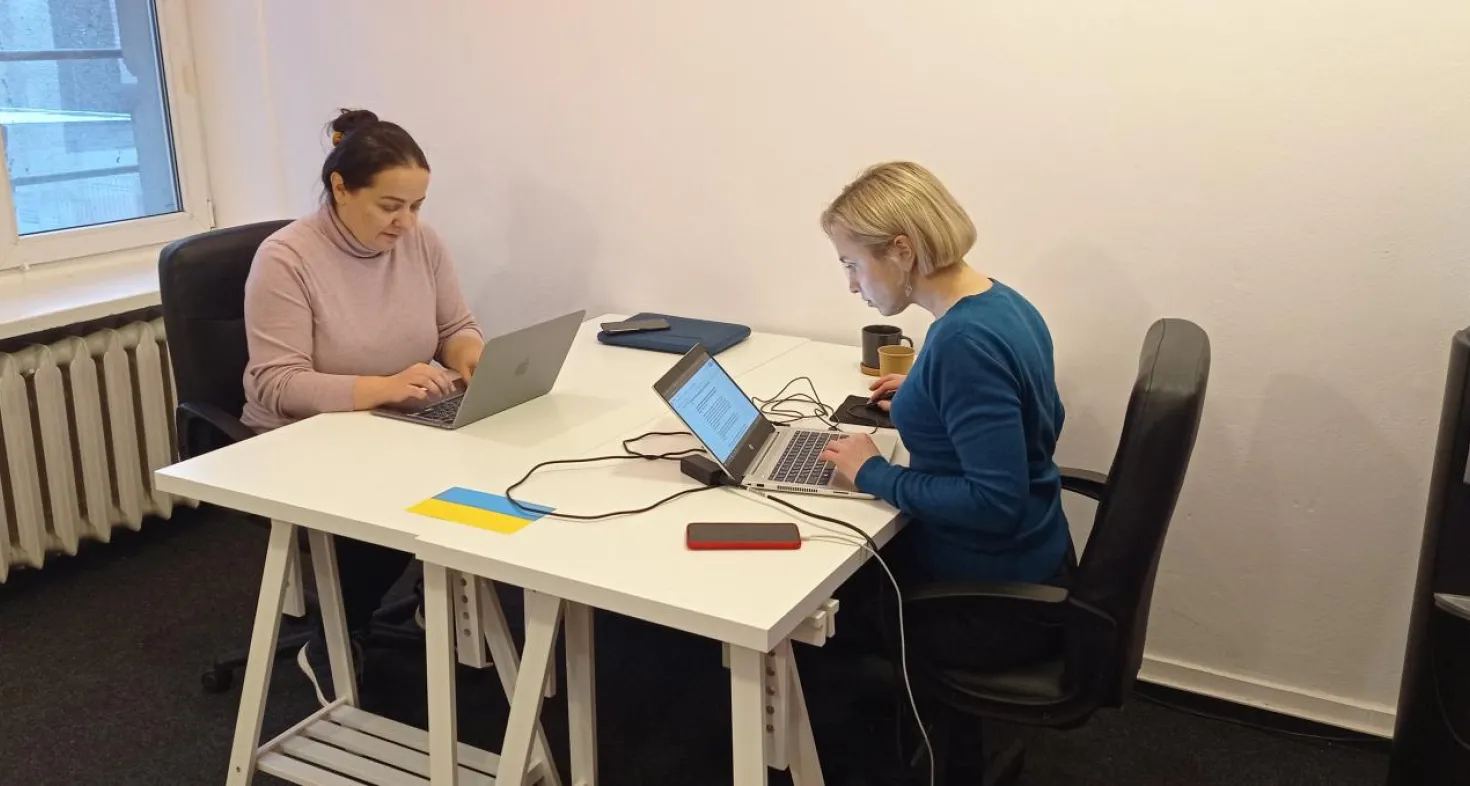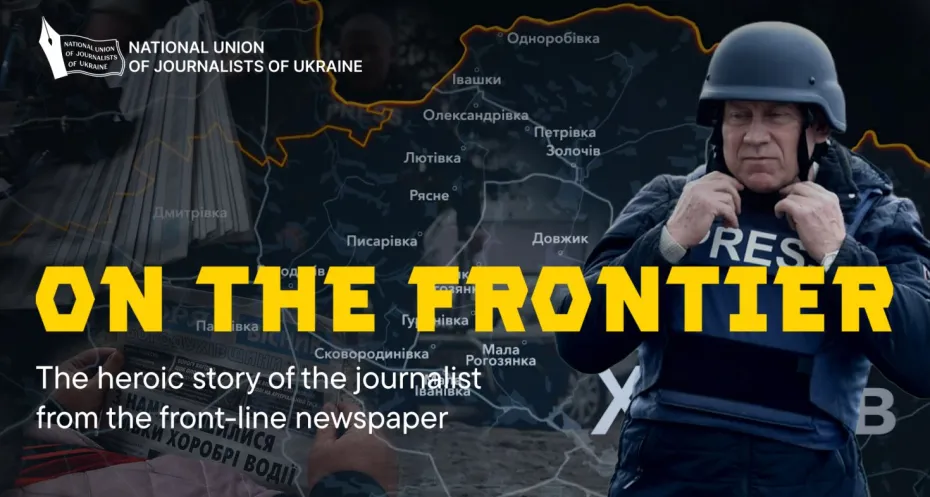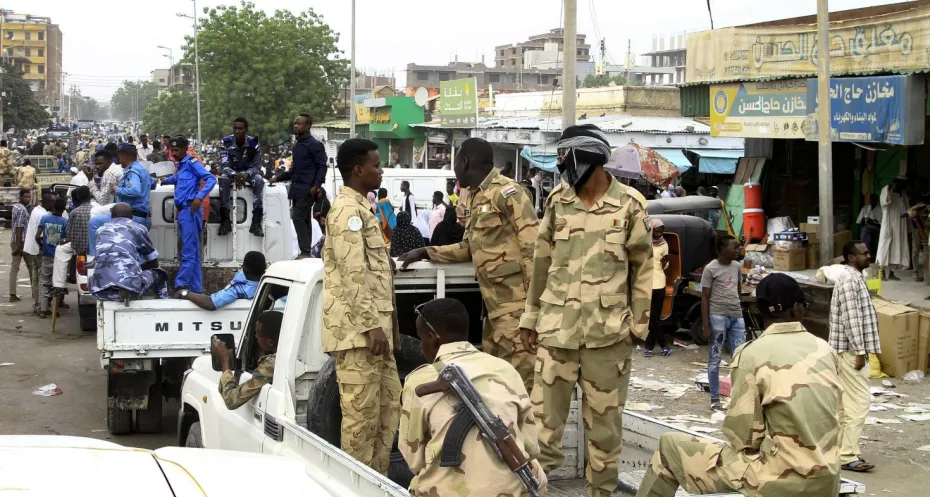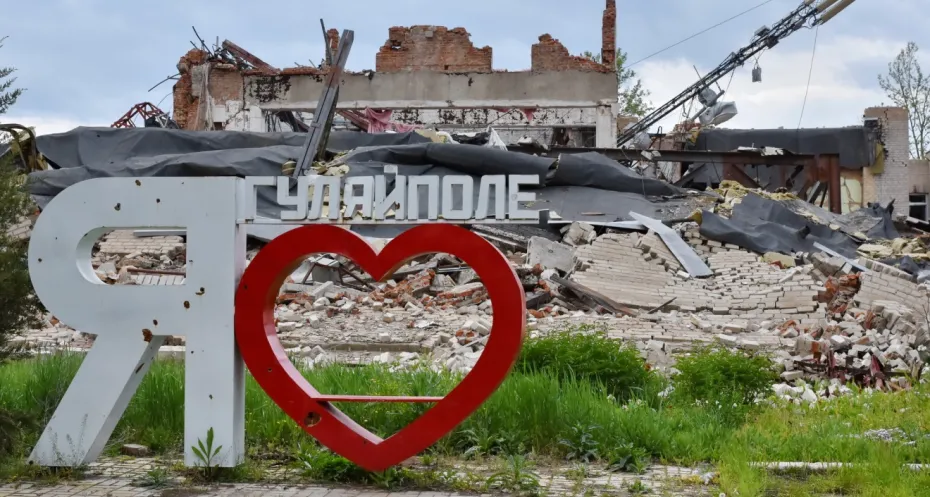
Supporting media in Ukraine from abroad: "We help in any way we can."
Through our Media Lifeline Ukraine initiative, we have been able to support journalists in and around Ukraine since the start of the Russian invasion. Many journalists fled Ukraine, but still want to continue working. Via our media hub in Poland, a team of Ukrainian women journalists continue to support independent media that are still operating in Ukraine.
We spoke with journalist Nataliya Ryaba, producer of the team of journalists in Warsaw, Poland. For 20 years, she worked as a journalist and editor at different Ukrainian media outlets. For the past three years she worked for Ukraine 24, one of the biggest Ukrainian news TV channels. After the invasion on 24 February 2022, she kept working in the country for a few weeks, before relocating to Poland to continue working from there. When Ukraine 24 closed in July, she started working for the Ukrainian news department at Radio France International. Then she found the media hub in Warsaw, run by Free Press Unlimited’s sister organisation Free Press for Eastern Europe, and became a producer there, as part of our Media Lifeline Ukraine initiative.

What was it like for you to keep working after the invasion started?
“It was my shift when the invasion started, and it was probably the most horrible day of my life. It was hard to understand what really happened, but you know that you have to inform people. That is your main goal, and for this you need to be strong. I did not have a moment to relax.
Even though it was a very difficult time, it was a good experience for us as journalists because we learned how to do our work quickly and in an organised way. What was challenging was that we would often receive information that was based on emotions. We had to try to be rational and fact check everything carefully.”
“We support media operating in Ukraine in creating their stories when they do not have the time, energy or means to do it.”
Can you tell us more about the refugee journalist team that you lead, and what you do?
“The team consists of five journalists and two producers, all Ukrainian women, due to the limitations on leaving the country for men between the ages of 18-65. Some of our journalists write articles, and others create more visual stories. We collaborate with media operating in Ukraine. We propose topics for stories to them that we can make here in Poland, for example stories on refugees. And then we produce it for them. Besides this we support them in creating their stories, when they do not have the time, energy or means to do it. Due to bombings on energy infrastructure they often deal with blackouts and power outages, so it’s very complicated and difficult to work from Ukraine. That’s why we help in any way we can.

Besides this, it is also a great collaboration and opportunity for the Ukrainian journalists in my team. It was very stressful for them to leave the country, and some of them have their children with them who they need to care for. Now they have the financial security from a salary, and they have a house, because of the support through Media Lifeline Ukraine.
“Our desks have a small Ukrainian flag on it, so we know it is ours. It’s small things like that that make you feel better.”
What is it like working in the media hub?
“What I love most about it is the collaboration between everyone. There are also journalists from Belarus working there, who came there after the election in 2020. They also experience many difficulties because of the Lukashenko regime. We really found each other in this, and it’s really nice to share our experiences. And it’s also contributing to our work. When we cover topics that involve Belarus we can ask them for input.
And this might seem insignificant, but our desks have a small Ukrainian flag on it, so we know it is ours. It’s small things like that that make you feel better.”
Are there any other ways in which you and your team have been supported?
“Support for finding accommodation was very important. This helped to have stability in your everyday life, which makes you calm, and creates a good atmosphere. Another thing is the support we receive from the people from Free Press for Eastern Europe. They are very open, they understand us, and can help us every day. It makes you feel that you are not alone here in this country that is not your own. It's very important to have some emotional support.
“I dream that the war will end and that we can all return home.”
Lastly, we have also been put in touch with Polish journalists in Warsaw. Working with them helps us to receive more information and write better articles, and they help us understand how it works in Poland when it comes to the media. They are very open to us, which is really great.”
And what do you hope for in the coming year?
“Of course I dream that the war will end and that we can all return home. All of us want to go back home. Besides that I really hope that Media Lifeline Ukraine will continue to exist for many years, even if the war is over. It’s so good to meet other professional journalists from other backgrounds. From the first minute I felt like we were one family.”
Media Lifeline Ukraine came into existence one week after the invasion, and now has the support of 30 organisations. We are continuously on the lookout for more support, to be able to maintain and grow the initiative. Being part of Media Lifeline Ukraine means enabling and maintaining access to reliable information throughout the entire region. This war is also an information war, and we have seen the effects of it in Russia where the flow of information, and therefore what people believe, is tightly controlled by the government. We need to fight against that.
Support Media Lifeline Ukraine here
Do you have any questions or ideas about what you can do to help Ukrainian independent media and support Media Lifeline Ukraine? Please contact Janine van Doorn.
Email: jvandoorn@freepressunlimited.org
Telephone: +31 20 8000 400 | +31 6 821 280 36



